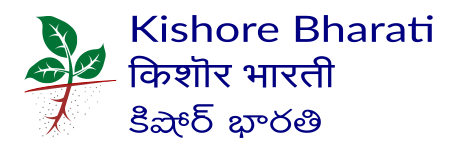By Aashutosh Mule 30th October 2021 It was a winter month of 2011. I had finished my post-graduation and was looking forward to pursue a PhD degree in neuroscience. I had heard of the Masters in Neuroscience course at the Life Science department of Sophia College. I went to meet the HOD, Dr. Medha Rajadhyaksha. “Unfortunately we do not have any current openings for PhD”, she sighed. But in the very next moment, with a gleam in her eyes she suggested me of a neuroscience project taking place elsewhere for which I might take interest. She took the name of Dr. M.C. Arunan and shared me his contact.I was amazed that all I had to do was tell him I was interested to know of his project in my first call, and this person started talking to me with such great enthusiasm, giving me so many different examples of how cognition could be studied in animals, almost as if he knew me since quite a time. He told me of how sparrows hop and never walk unlike crows and how this differing degree of freedom of movement could have a correlation with the complexity of their brains. Drawn by this enthusiasm of the mentor, I went to meet him to know more of the project. The collaborative model of learning called CUBE was just taking shape then. I cleared the interview and was recruited on the project at Homi Bhabha Centre for Science Education. In my project work, an important practice that Dr. Arunan carried out was to ask me to go to the blackboard and explain the work I was doing. He never gave direct answers, but through intensive discussions helped me arrive at them. But I failed to notice it then. Three months into my tenure, I was required to train a batch of 12 young undergraduate students on various projects involving simple model organisms. It was once when I saw Arunan’s disappointed face on seeing me instruct the students, that I, for the first time, understood that what he sought. He always wanted knowledge to be constructed through discussions and not be instructed.Four years later I joined as an Assistant Professor at the Biotechnology department of Elphinstone college. I used to take lot of efforts at simplifying concepts so that most students understand my teaching. I was doing good. Students used to understand my lectures well (or so I believed), and soon started looking forward to my lectures. I had gained some popularity as a favourite teacher among the students. In the Diwali vacations, I got to know of the CUBE winter workshop and thought that this would be a good opportunity to expose my students to research activities. So, I encouraged them to participate for the workshop. I used to be there along with the students to see how they find it. The students very excitedly participated in many different projects. Like it was with me four years ago, I saw my students go to the board to describe their project and participate in a discussion. On one given day, the discussion brought up the topic of estimating volumes of liquids while preparing culture media. The moment I realised that this topic has been taken up, I leaned forward with confidence. Just a month ago, as a prelude to one of my practicals with these students, I had very nicey explained to them about making unit conversions. I remembered it as one of my best lectures at college. My confidence that, if not for anything else, my students would certainly be able to answer these questions, was shattered within minutes, as I saw my students fumble miserably with the concepts taught to them in the best of my lectures. And then they learned the same concepts, but this time not by being instructed by their favourite teacher, but rather by constructing the knowledge themselves through a two-way discussion. Four years ago, I did have a taste of this constructive way of learning when I was working under Dr. Arunan for the CUBE project. But inspite of knowing that constructive learning is better than the instructive mode, I simply followed the instructive approach when I took up to teaching myself. After all, we all are products of the same old system of instructive learning. We all have spent hours learning through powerpoint presentations or diagrams on the blackboard. The instructive way of learning is so ingrained that when we ourselves take up teaching, we find better organization in such structured mode of teaching. But as I sat that day among my students during an active causerie at the CUBE workshop, I realized how unstructured but facilitated discussions are way more effective than any instruction we do with the aids of presentations.I realized how effective CUBE is as a model of learning, not when I was a student myself, but when I turned a teacher.
